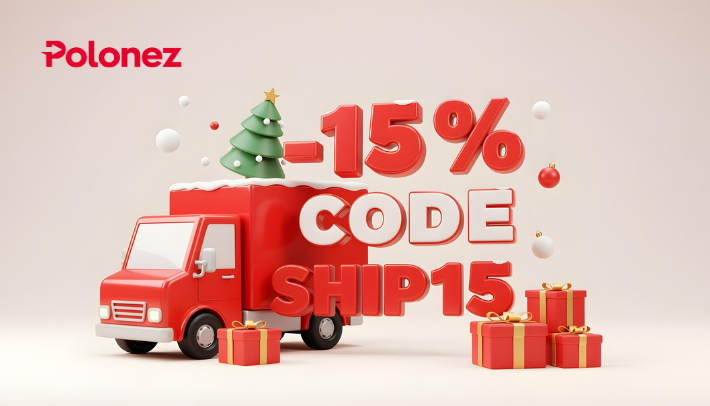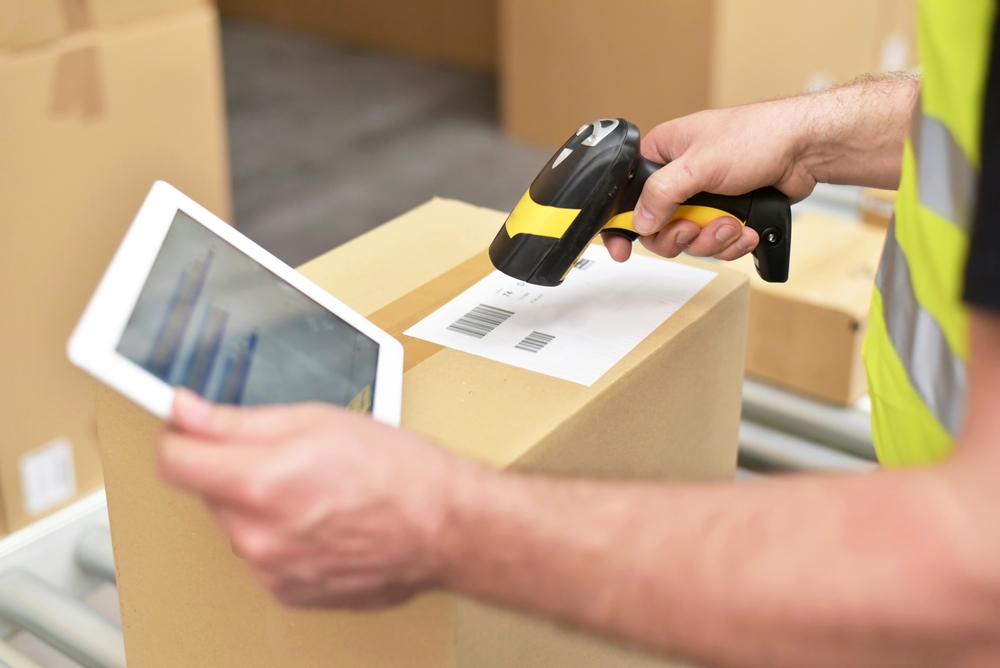Aug 4, 2025
Here’s How to Nail Down Your Poland Relocation Costs

When it comes to Poland relocation costs, consider the fact that Americans are increasingly moving overseas, seeking new adventures. This includes looking for better financial prospects, or simply a slower pace of life and warmer weather. Europe is now popping up on their shortlist.
For many, they’re finding out that Poland is a land of contrasts, with strong economic growth but also much lower daily costs. This allows remote workers and retirees to stretch their dollars much further. However, moving there isn't always smooth sailing.
Navigating the piles of paperwork and adapting to different customs can test even the most patient person. Some newcomers have stared blankly at a Polish grocery store cashier while trying to pay with a wrinkled U.S. dollar bill.
Cashiers will usually kindly laugh, pointing to a card reader. Moments like these are a common experience.
Fortunately, you can glean from real facts and expat stories to give a clear view of both the freedoms and hurdles you might face. For those serious about moving, it's wise to be prepared for both the easy wins and small stumbles along the way.
“Moving takes a good deal of preparation, careful planning and research,” according to Careers in Poland. “Otherwise, the likelihood that you will experience an unwanted surprise during your relocation is quite high. When transferring your place of permanent residence to Poland, the need for current information on their customs procedures and requirements is crucial.”
It adds: “Having the facts beforehand will enable you to make the proper arrangements, and avoid any nasty penalties or clearance problems.”
The Grand Migration and Poland Relocation Costs
In 2022, over 6 million immigrants settled permanently in the European Union and several other countries, many of whom calculated their Poland relocation costs before moving. This doesn’t include the over 5 million non-EU citizens, many of whom were Ukrainian refugees, who arrived in Europe — a number that more than doubled from the previous year.
Americans, in particular, have many reasons for moving abroad, including a desire for new careers, better work-life balance, and lower healthcare and day-to-day living expenses. The prospect of more vacation time and shorter workweeks in countries like Germany and the Netherlands is appealing to tired workers.
Additionally, concerns about safety and high crime in certain cities and areas of the United States are pushing some people to seek calmer places with fewer risks.
Poland's story with migration has flipped dramatically. After World War II, more people were leaving than arriving — over 500,000 between 1966 and 1989 alone, with most ending up in Germany or the United States. Everything changed when communism collapsed in 1989, and life began to push people to stay.
This shift was accelerated by Poland joining the European Union in 2004. Now, with a declining birth rate and an aging population, newcomers are heading to Poland instead. Millions of Ukrainians and Belarusians have arrived, and businesses have felt the change quickly.
A recent Deloitte study showed that Ukrainians helped lift Poland's economy, boosting Gross Domestic Product by 2.7 percent without causing local workers to lose jobs. Poles found more work as companies became more productive.
Your Visa and Planning for the Unexpected
The challenge in obtaining a D-Type national visa relates to stays longer than 90 days, something that those researching Poland relocation costs should take note of.
This requires an in-person visit to the Polish consulate that serves your state. You should be prepared for a potential interview and to have all your documents in order.
You will need a completed and signed application form, a passport less than ten years old with enough blank pages, and a validity that extends at least three months beyond your planned departure from Poland. You also must show proof of funds, such as bank statements from the last three months or recent pay slips, and travel health insurance with a minimum coverage of EUR 30,000.
Additionally, include a flight reservation with your application. This sheds more light on your specific situation.
For those moving for a job, you'll need a work permit and a formal letter of invitation from your future Polish employer. Students, on the other hand, must provide a letter of acceptance from a Polish university.
Once you land in Poland, the D-Type visa allows you to enter and begin your new chapter, but it's not the final step. You must then visit the local Voivodeship Office to get a temporary residence permit.
After living in the country legally for five years, you will become eligible for permanent residency. This requires you to prove you have a steady income, valid health insurance, and language skills at a B1 level.
The process is long, but with patience and preparation, you can make Poland your new home.
“When importing personal effects and household goods into Poland, there are specific regulations that need to be followed to ensure a smooth customs clearance process,” states U.S. Citizenship and Immigration Services (USCIS). “By following these regulations and providing the necessary documentation, you can ensure a smooth customs clearance process for your personal effects and household goods when importing them into Poland.”
Poland Relocation Costs, Customs, and Shipping
Moving personal belongings, or even large items like a car, demands a heavy amount of Poland relocation cost paperwork. To qualify for duty-free status, you must prove you have lived outside the European Union for at least one full year and that your possessions have been with you for that entire period.
Polish officials require specific documentation, including an inventory of your belongings in Polish with their values, proof of your year abroad (such as tax returns or bills), your original passport and ID, a completed customs form, and proof of your new Polish address. You'll also need an invoice showing what you paid for the move.
Bringing a car requires even more steps. You must prove the vehicle has been in your possession for at least six months prior to shipping, and you need to provide the original title, a bill of sale, and six months of insurance documents.
Missing a step can lead to significant extra costs, including a 10-11 percent duty and a 23 percent Value Added Tax (VAT) for some. While the process may seem tough, it becomes much easier if you have every document ready in advance.
“Before going to Poland, it is recommended to learn about the living and working conditions in Poland and the situation in the Polish labour market,” states EURopean Employment Services (EURES), a European cooperation network between the European Commission, the European Labour Authority, and employment services. “This information can be found on the EURES European Job Mobility Portal and the Polish EURES website.”
The Transportation Question: DIY or Pro?
When moving your possessions and researching Poland relocation costs, you face a major decision. Should you hire professional movers or handle the move yourself?
Professional companies can manage the packing, shipping, and customs processes. This minimizes stress and helps prevent problems at the border.
While the do-it-yourself (DIY) approach can save money upfront and gives you complete control, many people run into time-consuming and costly issues that lead to frustration. For most, shipping belongings in a container is the most common method.
If you have enough items to fill an entire container, your goods will likely arrive faster and more securely. Alternatively, a smaller load can share a container with other shipments, which is more affordable but may take longer.
Since each method has its trade-offs, it's important to carefully weigh your options.
Here are the required customs documents for household goods and vehicles:
|
Requirement |
For Household Goods |
For Vehicle |
Notes |
|
Proof of Residence in U.S. |
Yes (12 consecutive months) |
Yes (12 consecutive months) |
Tax statements, utility bills, rent receipts, and more (must be in the individual's name). |
|
Proof of Residence in Poland |
Yes |
Yes |
Notarized rental agreement, registration receipt. |
|
Detailed Inventory List |
Yes (valued, in Polish, signed) |
Yes (car details on list) |
Cannot be altered after first submission. Must note electrical item details. |
|
Original Identity Documents |
Yes (ID, passport, visa) |
Yes (passport) |
Must confirm stay in the U.S. |
|
Customs Declaration Form |
Yes |
Yes |
Must be completed and submitted. |
|
Invoice/Bill of Sale |
Yes |
Yes |
Must specify owner name, address, and value. |
|
Vehicle Title/Registration |
No |
Yes (original title) |
Must be registered in the name of the relocating person for at least 6 months prior to shipment. |
|
Proof of Insurance |
No |
Yes (for 6 months prior to shipment) |
May require an International Insurance Policy (Green Card). |
Making Dollars Go Further Within Your Poland Relocation Costs
Many who are researching Poland relocation costs discover that living there can feel like unlocking a whole new budget. Expenses for an individual or a family can drop by almost 60 percent compared to the United States in certain respects.
This difference allows U.S. dollars to stretch further, attracting retirees and remote workers. Rent and groceries, especially basics like bread or rice, are much cheaper, with a city-center apartment costing almost 70 percent less.
Gas is more expensive. However, daily expenses like public transportation and taxis are about 60 percent cheaper.
Jobs in information technology, finance, and engineering are plentiful, although individuals without European Union papers may face hurdles. Getting a work visa or residence card is a long process filled with paperwork. A recent law is expected to speed things up, although local officials might still limit foreigners to certain fields.
Once you arrive, things might feel a bit unfamiliar. While English is common in big Polish cities, language barriers can make settling in tough. People might seem distant at first, but with a little time, they often open up, with warm smiles and generosity following.
Americans who are used to chatting with strangers might feel out of place, and different habits can stand out. A newcomer from New York might rave about Kraków's safety, while a local grumbles about the thick winter smog. It’s a fun, memorable period for many, to say the least.
One huge issue is that workers with advanced qualifications often end up in basic jobs due to language struggles or rules about recognizing foreign degrees. Recent studies have found that many Ukrainian refugees with top education are working in jobs far below their training, and this issue extends to the American community as well.
Whether the most recent batch of U.S. professionals will be able to make the most of their experience here, and whether high-paying roles will last, remains unclear. Time will tell how things shake out.
Polonez America
Polonez America specializes in Poland relocation costs options from the United States to 43 European countries, and specifically Poland. We offer parcel shipment via ocean or air, vehicle shipment, commercial LCL (Less than Container Load) and FCL (Full Container Load) shipping.
Our comprehensive range of services means customers can initiate package or commercial shipments from any of Polonez's authorized shipping outlets within the United States, which are then transported to our headquarters for sorting. Customers can send packages from authorized shipping outlets in the United States or by sending them via UPS, FedEx, or U.S. Postal Service to Polonez America's headquarters in Port Reading, NJ.
Polonez America is your expert in the resettlement process, collaborating with European partners for parcel services, customs, and delivery within Poland and other countries. We earn client trust through integrity and professionalism by delivering the highest quality service at the most competitive price.
Recommended to you

News
Dec 2, 2025
Don’t Miss Christmas Delivery!
CHRISTMAS IS JUST AROUND THE CORNER. There’s still time to send your holiday parcels to Poland — but the shipping deadlines are approaching quickly!

News
Dec 1, 2025
15% OFF Online Shipments
December Holiday Promo

News
Nov 24, 2025
How the Middle Warehouse Ensures Quick Delivery to Poland
U.S. online shops are reaching more buyers in Europe every year thanks to quick delivery to Poland and other countries.




